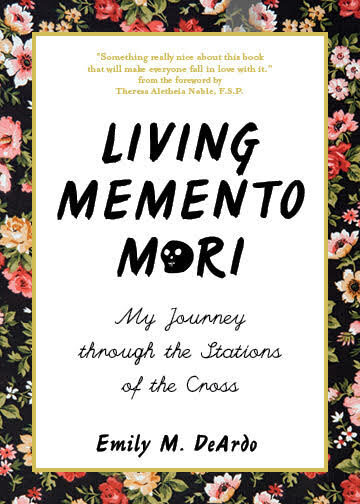I have not read the entirety of it, but Darwin’s posting a series on the pandemic that promises to be his usual clear-headed, data-oriented analysis. What follows is not that at all. I’m here to talk about my mid-life crisis, thanks.
***
So for us the pandemic has been . . . okay. SuperHusband’s employer was ahead of the curve on shutting down travel and protecting employees. South Carolina, meanwhile, has been blessed with a pretty good experience so far, all things considered — made even more so by the unseasonably pleasant weather. In terms of cases that touch us personally, a longtime colleague (age 42) died after a long struggle with COVID-19, and another colleague who has a side business lost one of his employees (age 35) quite rapidly. Otherwise we’ve been fortunate that our friends and family have fared quite well, and we firmly hope that continues.
In terms of practicalities, here’s how coronacation found us: Last year, I was teaching full time. I opted not to renew for this year, even though the job was fun, meaningful, and kept me surrounded by awesome people, because the hours were significantly more than I wanted to take away from family life. Summer, fall, and winter found me discombobulated in six different ways, which I’ll forbear from cataloging, but suffice to say that when the unexpected descended this spring, I did not come into the season feeling like my life was, at all, pulled together.
So here are some of the changes that the big shutdown entailed:
- We have six people home full time — four teens doing school, one adult working full-time, one adult (me) working part-time freelancing.
- Homemaking skills are suddenly at a premium as we’ve dealt with the minor shortages, the need to be very careful about outings, and the far more intensive usage of our home.
- Because all activities are canceled — church, kids’ sports, school programs, substitute teaching, concerts, every. single. thing — we are home, and home, and home.
For my husband and I, this has been mostly-heavenly. The time he’d spend commuting in the morning instead we drink our coffee together and converse. We have lunch together, usually sitting outside enjoying the beautiful weather. We have family dinner every single night. My husband calls it his “working vacation” and even though he is working as much as ever, plus putting in a second shift on construction work finishing out the addition we started last fall, for him this is the perfect life.
We have, of course, had to work through assorted issues that were always there but never dealt with, all related to concerns I had long harbored about what life would be like after he retired, because for an introvert to never, ever, be alone at home can be rough. I think — helped by construction reaching a critical threshold that has caused me to mostly have my own office now — we’ve worked through much of that. Praise God.
Meanwhile, both my own experience and what I’m seeing all around me has been very illuminating, in terms of understanding my own vocation. Here are a few of the things I’ve been getting my head around.
Affirmed: My kids are awesome. I have no opinion whatsoever on the employment decisions of other mothers. I’ve done the range, from full-time homeschool mom to full-time working mom, and lately I’ve been working part-time with all kids in school. Having the kids back home full time? It’s really nice. I like these people. I enjoy being with these people. We are very close to the time when we expect our nest to rapidly empty, and getting these few months of all kids at home has been an affirmation that, for me, who had the privilege of being able to make such a choice, the decision to prioritize quantity-time with my kids over other pursuits has been the right path. A risky choice, no doubt. But a good one.
Affirmed: Relationships consume time. I can remember many nights when my mom, who had to be up for work at four in the morning, would talk to me past midnight because there was something on my mind, or because we had suddenly hit our stride and to her the lost sleep was worth the gained connection with a willful teenager. Talking to your kids take time. Loads of time.
Parents find different ways to do it — time in the car, time spent doing chores together, late nights, weekends — whenever and however you’ve got it to give. But there is no getting around the reality that kids want to spend time with their parents, and that time cannot be assigned to other mental work.
This is valuable for them and precious for me. The only time I have with my kids is this time, right now. So my husband and I — but especially me because without a regimented work day my time is much easier for the kids to claim — find ourselves wondering why we can never get done half the things we thing should get done. It’s because we’re talking to our kids.
Affirmed: Good meals take time to prepare. We’ve eaten better, even during the weeks when groceries were hard to come by, than we have in . . . ever. Prior to coronatide, in twenty years of parenting my husband and I had never succeeded at sitting down to family dinner every night. Over many months prior to the shutdown when I was neither working outside the home nor homeschooling anyone, dinner was still a rushed and hit-or-miss affair. I thought, for years, this failure was due to some inherent defect on my part.
Nope. It turns out that if you spend the hours of 3pm to 5:45 shuttling children around to various events, you can’t also be cooking during that time. It turns out that if every single night of the week your schedule is different, with different family members rushing off in different directions (every single one of them a worthwhile pursuit), you can’t get into a dinner routine. And furthermore, it turns out that giving yourself a full sixty minutes to prepare dinner allows for way more options, and much better quality food, than trying to quick throw something together in twenty.
So now we’re eating really well. People like my cooking better. Our food is more nutritious. I honestly have no desire to go out to eat. Complication: Even though my husband and I both strongly prefer this way of living, we have no idea how to achieve it when the world opens back up again.
Affirmed: Homemaking is its own full-time job. I’ve been watching, remotely, all these really accomplished professionals struggle to keep on with their careers, only now from home and with kids around. Doesn’t work. Last year teaching, I got all kinds of thing done. It worked because I was not present to my family. Getting the beast written and re-written? For lack of an office I found myself ordering three dollars worth of food and coffee from McDonald’s and then sitting in the backseat of my car with my laptop, using the free WiFi from my improvised remote office.
Being present to your family is work. It’s good work. Pleasurable work. Energizing work. But providing that presence — even if the kids are older and self-starters and half of them are legally adults — and attending to the needs of the family takes time and energy. It’s time and energy that you can’t be doing other things. We can prove it is work by the simple fact that if you the parent don’t do it, if you want it done you’ll have to pay someone else to do it. People will line up for rides at Disney. They don’t line up to conduct your home life for you.
My point in observing all this is not to conclude that there is a specific way any particular family should organize its hours and distribute its labor. My point is to share a very reassuring discovery: All these years I felt inadequate because our society sells this illusion that somehow parents can both be full-time homemakers and be full-time professionals. But it’s not so, and the experience of the many, many parents now struggling to work from home is the affirmation of this reality.
Affirmed: Twice as many meals, twice as many dishes. I’m not doing them, the kids are. Interestingly, now that the kids can choose whatever they want to eat for lunch, the school snacks are languishing untouched and the leftovers get eaten. Pretty nifty.
***
I don’t have a big point to all this self-discovery other than that now more than ever I want to punch all the people who saddle parents with “if you loved your kids/neighbor/America/Jesus you would _______.” If the parents are working full time outside the home? They definitely do not have time to do your ‘one little thing’ in addition to their other very real responsibilities at work and home.
***
Beyond that, I have no particular resolutions or vision for our future. SuperHusband and I know that we like the slower pace of life; we also know that the faster pace of life was there for a reason. I can’t think of a single thing we were doing all these years that was not a worthwhile use of our time.
We’ll have to see. Meanwhile, here’s a story for you by way of conclusion: Last spring as the school year wrapped up, at one of our all-faculty teacher meetings, the head of school had those of us not planning to return in the fall share what our next plans were. Most people had the usual — moving for the spouse’s job, expecting a baby, retiring after many years of service.
My answer? “I’ve learned not to make plans.”
If you’ve been reading this blog long enough, you know how I’ve come by that habit.
Coronatide stamped a big fat Affirmed on that one, too.

Photo: Diego Delso, delso.photo, License CC-BY-SA.
Life Coaching Tip, since after all that rambling you surely deserve at least one, right? Here it is: If you aren’t already a Diego Delso fan, you need to change that.















